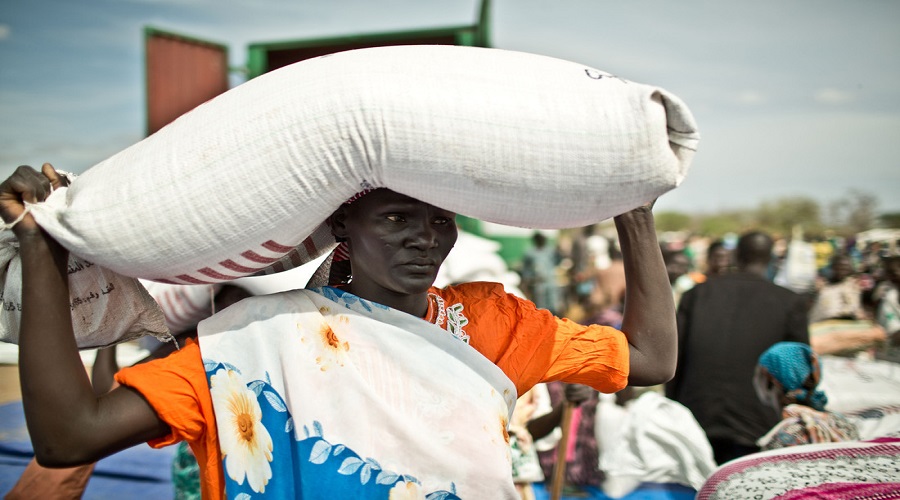Supporting survivors of conflict in South Sudan
Millions of people have been displaced from their homes in South Sudan. They are facing hunger and acute food insecurity as a result of on-going conflict. Oxfam is responding to immediate humanitarian needs as well as long term recovery.
We focus on providing clean water, promoting public health, livelihoods support and promoting active citizenship. We also work with our partners on peace building and governance issues.
Access to safe water
Improving access to water is essential to saving people’s lives during a conflict. More than 47 per cent of people in South Sudan do not have access to clean water. This is particularly true for people from conflict-affected areas who have been forced to flee their homes with little to nothing. People walk for long distances to collect unsafe water from contaminated wells and ditches, leading to sickness.
In Central Equatoria, Jonglei, Warrap, Upper Nile and Lakes, Oxfam has provided water to over 350,000 people through a network of taps, pipes, and water tanks to ensure that clean water is accessible to as many people as possible.
“It used to take very long to collect water. Now I collect water in the morning and evening without wasting time,” explained Nyawol Piu who is now able to now collect water from an Oxfam water tank in Jonglie state.
Across South Sudan, communities and camps for those displaced by the conflict lack sanitation infrastructure.
To help combat these problems we are conducting hygiene sessions and distributing hygiene kits containing buckets, jerry cans, soap, water treatment tablets and sanitation pads to support proper hygiene practices. We are also providing the necessary training and materials to build latrines. So far we have provided latrines to benefit 1,973 people.
Food insecurity
Nyamor Nwat lives in a small farming village in an opposition-held area in South Sudan. All major supply routes have been cut off by the conflict, making food and water supplies even scarcer and more expensive.
With no means of income, people like Nyamor can’t afford to buy food from the market to supplement the little they have been able to grow. Before the crisis, her family was able to move around – they could grow twice as many crops and there were more places where their cattle could graze but with all the fighting it just too dangerous now. At the moment her family of 18 have just enough to eat but they will soon be forced to resort to eating grass and leaves to keep hunger at bay.

“When there’s no food I ask for a loan or I beg from my neighbours who have fewer children. Sometimes I feel so weak [from hunger], I worry that I will not have enough milk for the baby. Maybe one day people will see vulnerable people like us and decide to help more” says Martha, a mother of six in a camp near Bor.
The crisis has made it hard for people to plant crops, disrupted livelihoods and markets and forced host and displaced communities to share the little they do have, leaving 4.6 million people without enough food
Since June 2015 over 2,600 tons of food have been delivered via air drops to northern Jonglei. This has helped people survive but it can only be a short-term solution. We are starting complement food distributions with fishing and agricultural activities to help empower people to become self-reliant again.
Supporting livelihoods
As a result of the conflict the economy has weakened and living standards have declined. Many people are unable to meet their day to day needs, putting pressure on already stretched public services and infrastructure. In urban areas like Juba, where the conflict began, living conditions are further restrained by the lack of work.
Oxfam is helping those affected by providing a scarce and vital resource in the town; clean water, to over 28,000 people in a UN camp for displaced people in Juba. We are also ensuring people have opportunities to earn an income.

